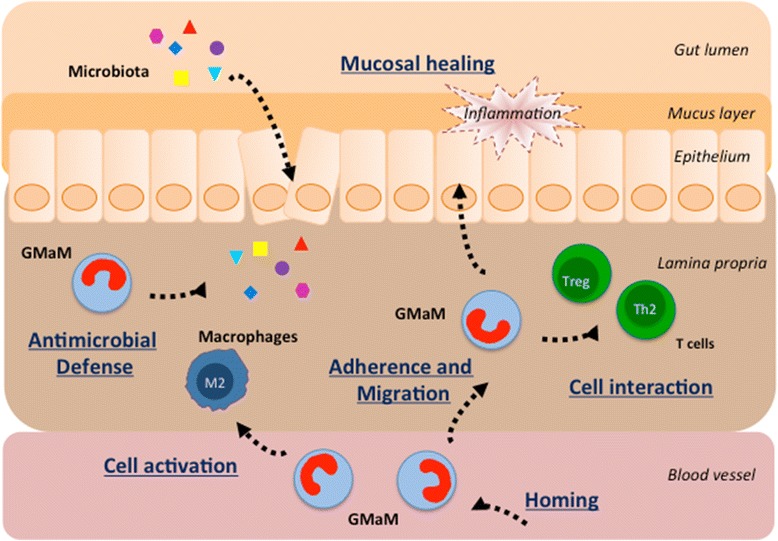Fig. 2.

Mechanisms of immunoregulation by GMaM in inflammatory bowel disease. The early imprinting of monocytes following activation with GM-CSF is of crucial importance, since monocytes play an important role during the early (recruitment) phase of the innate immune response in the intestine. GMaM represent a unique and distinct state of activation combining phenotypical and functional features of different M2 macrophage subsets. GMaM trigger augmented host defense functions including an increased generation of reactive oxygen species, which are required for pathogen clearance. GMaM have a higher capacity for adherence, migration, and chemotaxis; they attract T cells and have the potential to regulate adaptive immune mechanisms by induction of anti-inflammatory T helper 2 cells (Th2) and regulatory T cells (Treg). Furthermore, GMaM have the ability to facilitate epithelial/mucosal healing and to ameliorate intestinal inflammation. GMaM granulocyte macrophage colony-stimulating factor (GM-CSF)-activated monocytes
